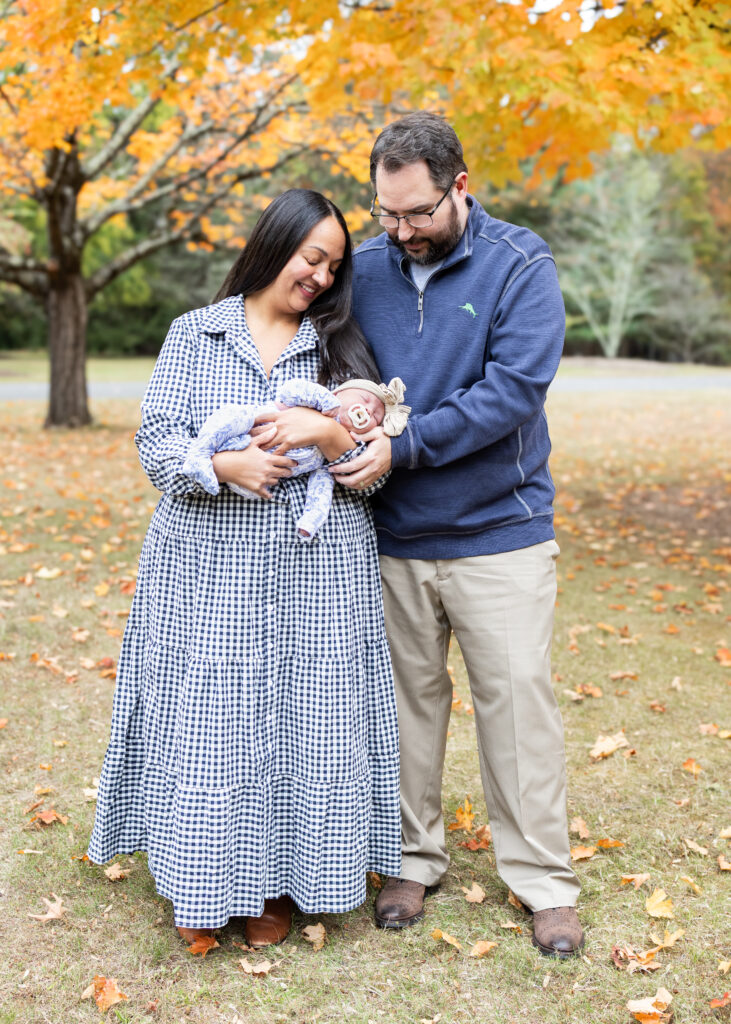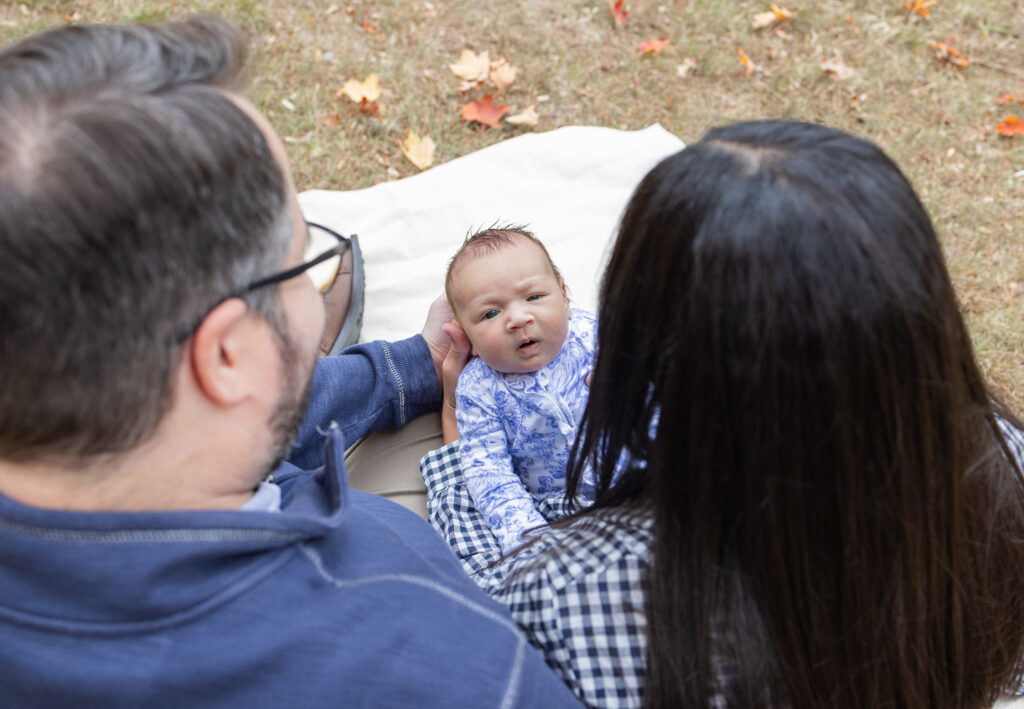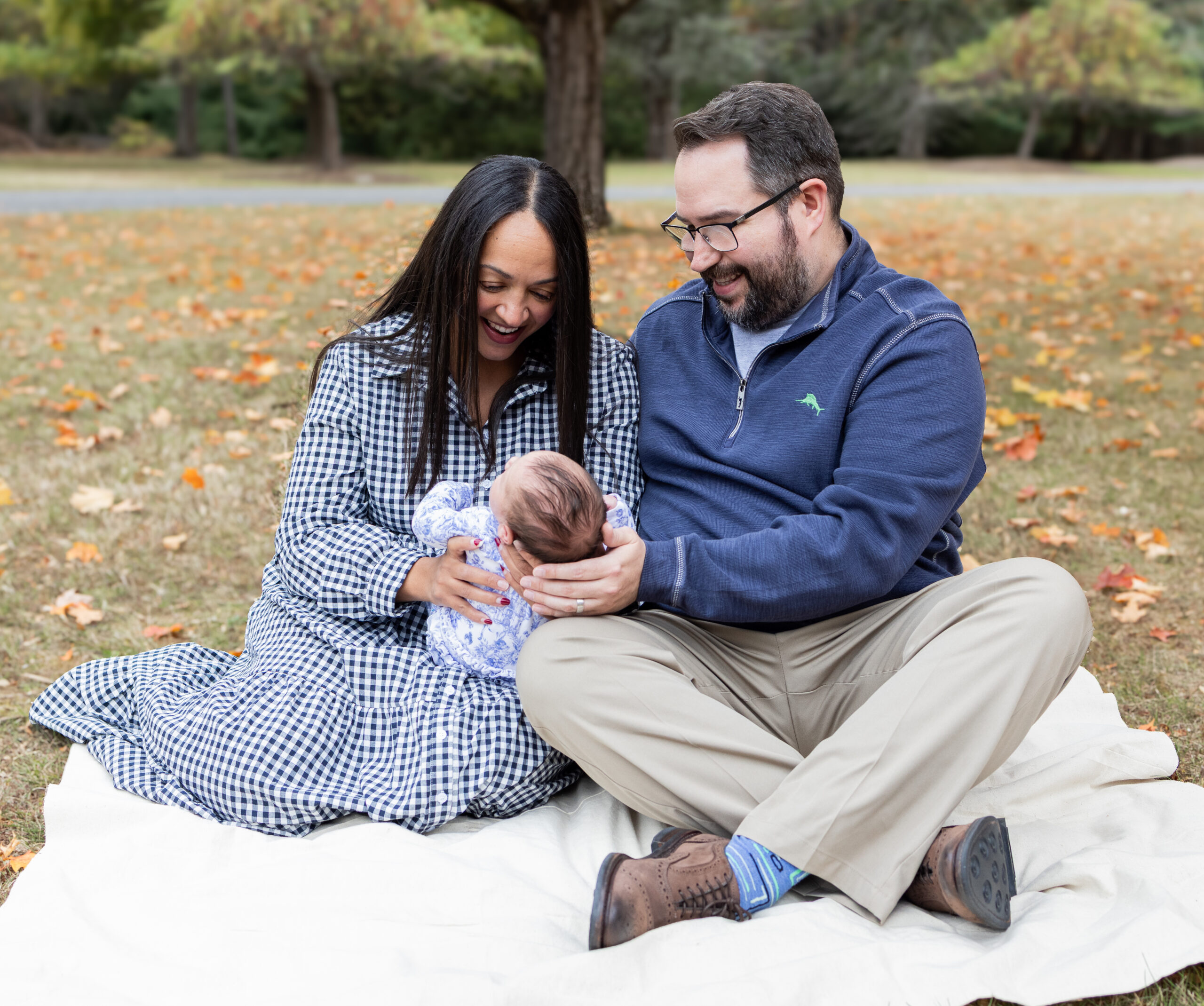
I recently sat down with Alyssa Kievit, owner of Expecting Well PT and a Doctor of Physical Therapy who specializes pelvic floor therapy in NJ for prenatal and postpartum women. She was kind enough to share her journey and valuable insights every expecting mom should know. If you’re an expecting or new mom, this post is full of information to help you feel informed and supported.
Meet Alyssa Kievit: Offering Pelvic Floor Therapy in NJ
Alyssa’s path to physical therapy was anything but traditional. She attended Kean University for graduate school and originally had no interest in pelvic floor therapy. It was briefly mentioned in her program but never explored in depth. After graduation, she began working in sports therapy and didn’t think much about pelvic health; until one day, a new patient came in who specifically needed a female provider.
Alyssa stepped in to help, and that experience completely shifted her perspective. She decided to specialize in obstetrics but still wasn’t sure she wanted to work with the pelvic floor. After treating a few patients, though, she realized something was missing from their care. Curious, she took a pelvic floor course, and was instantly hooked. Once she began incorporating pelvic health into her treatments, she realized she could offer even better results if she worked one-on-one with clients. That’s when she took the leap, left her job, and started her own clinic.
Today, Alyssa blends orthopedic sports therapy with pelvic floor therapy to provide comprehensive, individualized care. Getting clients in the beginning wasn’t easy. She hustled to get her name out there, marketing herself in local mom groups and anywhere she could. A friend who’s a graphic designer helped her create her logo and branding, and from there, Expecting Well PT began to grow.
Common Physical Discomforts During Pregnancy
Aside from injuries, some of the most common discomforts Alyssa sees include
- lower back pain
- round ligament pain
- rib pain
- foot pain
- and pubic symphysis dysfunction.
Low back pain can begin as early as three weeks into pregnancy, especially in women who have been pregnant before. Many women assume pain is simply part of pregnancy and learn to live with it—but that’s not necessary. Relief is possible, and you deserve to enjoy your pregnancy without constant discomfort.
What Does a First Pelvic Floor Therapy Session in NJ Look Like?
At your first appointment, Alyssa will start by taking your subjective history—she’ll ask about your symptoms, how your pregnancy is progressing, any past injuries, activity levels before and during pregnancy, and any previous pregnancies. Then, she’ll do a full orthopedic assessment to evaluate your spine, hips, upper and lower body strength, and abdominal function.
She also checks for diastasis recti, which is completely normal during pregnancy. Depending on your trimester, she may recommend a pelvic floor assessment. This is not a gynecological exam—it’s a simple one-finger internal assessment to evaluate pelvic floor muscle function: your ability to contract, relax, and bear down properly. Understanding the resting state of your pelvic floor is important for birth preparation. It helps you learn how to push effectively, reduce the risk of tearing during childbirth, and set yourself up for a smoother postpartum recovery.
Alyssa recommends doing this assessment in the second trimester if possible. Some women develop hypertonic pelvic floors during pregnancy, meaning their muscles are clenched too tightly and can’t relax properly. Since the uterus—not the pelvic floor—pushes the baby out, those muscles need to get out of the way during birth.
Through down-training, Alyssa helps clients identify the cause of the tension and retrain the muscles for optimal function. After the assessment, she creates a personalized treatment plan. The first visit lasts about an hour and is very comprehensive.
Birth Prep and Recovery Help
Alyssa also works with pregnant women for birth prep—building strength for delivery and postpartum recovery. Up until the third trimester, the focus is on strengthening; then it shifts to labor prep, push techniques, and reducing tearing risk.
She also teaches postpartum recovery strategies based on your delivery type. Each plan is customized to your body and goals.
Can I still exercise when I’m pregnant?
If you exercised before pregnancy, Alyssa says you can usually continue throughout—just make modifications as needed. There’s no need to eliminate your favorite activities unless they’re unsafe or high-risk.
Avoid extreme sports, lifting excessively heavy weights, or spending long periods flat on your back. Focus on strengthening your hips, glutes, and core, since these muscle groups support your body throughout pregnancy and recovery. The goal isn’t to set new fitness records—it’s to move safely and stay strong.
Posture Tips from a NJ Pelvic Floor Therapist
During pregnancy, your center of gravity shifts forward, your spine curves more, and your ribs flare out to make space for the baby. Alyssa recommends keeping your ribs stacked over your pelvis to help maintain alignment.
She gives her clients simple posture tips for everyday life, like while brushing your teeth or doing dishes: if you have a lower cabinet, open it and place one foot inside to challenge your core and hip muscles. If you can’t, stagger your stance with one foot slightly ahead of the other and hinge forward slightly.
If neither works, stand with your feet shoulder-width apart and hinge at the hips. These small posture adjustments help prevent discomfort and retrain your body to return to its natural alignment postpartum.
Give Yourself Time to Recover
Just because you had a baby doesn’t mean you have to live with pain or leaking. Those symptoms might be common, but they’re not normal. You’re allowed to seek help and feel comfortable in your body again.
Don’t rush your recovery or pressure yourself to “bounce back.” Weight and appearance aren’t the priorities, your mental health is. You just went through a life-changing experience, and you deserve grace and support.
If your clothes don’t fit, buy new ones in a size that makes you feel good. You don’t have to wait until you “lose the weight” to feel confident. Your body has changed—and that’s okay. It’s not supposed to go back to exactly how it was before.
When Can Moms Start Moving Again?
For vaginal deliveries, Alyssa recommends starting physical therapy around three weeks postpartum, and six weeks for cesarean births. She encourages new moms to start gentle movement as soon as they feel comfortable leaving the house.
Alyssa gives her prenatal clients a postpartum guide with exercises they can do right from the hospital. The most important focus early on is learning how to breathe correctly again. Because the rib cage flares out during pregnancy, retraining your breath helps restore proper core and pelvic floor coordination.
When your ribs move with your breath, your diaphragm and pelvic floor move in sync—lengthening on inhale and contracting on exhale. This connection is key for rebuilding core strength. Even if your core was strong before, it loses support after birth. Alyssa helps moms retrain their breathing and core engagement before progressing to hip and glute strengthening, gradually rebuilding posture and stability.
What Is Diastasis Recti and how can a Pelvic Floor Therapist in NJ Help?
Diastasis recti is a normal part of pregnancy. To understand it, think of your abdominal muscles like a corset: the transverse abdominis wraps horizontally around your core and connects to your spine. During pregnancy, the connective tissue between your “six-pack” muscles (the rectus abdominis) stretches to make room for your growing belly.
That stretch is diastasis recti—it’s not a tear, and it often resolves on its own within three months postpartum. You might notice a small bulge or “tenting” down the middle of your abdomen when sitting up. Some women also see “bread loafing,” where the sides cave in and the middle puffs out.
These are signs of pressure management issues, not necessarily damage. The best approach is to focus on breath retraining, posture, and consistent daily movement rather than random, high-intensity workouts. And if it doesn’t resolve on its own, seek guidance from a professional before trying to fix it yourself.
Supporting Emotional and Physical Well-Being
Exercise releases endorphins and serotonin, which boost mood and emotional well-being. But Alyssa emphasizes that postpartum recovery isn’t just about physical healing—it’s also about finding yourself again. She encourages all postpartum moms to talk to a mental health professional. Don’t assume things will “just go away” with time. You deserve support and comfort in your body and mind.
Symptoms You Shouldn’t Ignore
Alyssa says to seek help immediately if you experience
- new or worsening incontinence
- tailbone or hip pain right after delivery
- persistent low back pain
- numbness or tingling after an epidural
- or loss of sensation when you need to urinate.
These symptoms can signal something that needs attention, so don’t ignore them.
One Piece of Advice for Moms Starting Their Journey
Alyssa’s biggest piece of advice: everything is a season. It sounds simple, but it’s true. Things are always changing, and you don’t have to enjoy every stage.
She’s honest about her own experience—she didn’t love the newborn phase, even though everyone told her it would be magical. And that’s okay. Every mom’s journey is different, and every baby is different. Don’t compare your experience to anyone else’s. You’re doing just fine.
Closing Thoughts
A huge thank-you to Alyssa for sharing her knowledge and passion for helping women through every stage of pregnancy and postpartum recovery. Her work is such an important reminder that you deserve to feel strong, supported, and confident in your body—before, during, and after birth. If you’d like to contact Alyssa, you can reach her at Expecting Well PT or expectingwellpt@gmail.com.
If you’re expecting and want to celebrate this special chapter in your life, I’d love to help you capture it beautifully. I offer maternity and newborn photography sessions designed to honor your story, your strength, and the love growing within your family.
Have you thought about booking your NJ maternity or newborn photography session? You can learn more or book your session at stephspirouphotography.com or by reaching out directly at info@stephspirouphoto.com. Let’s create timeless images that celebrate this incredible season of motherhood.

